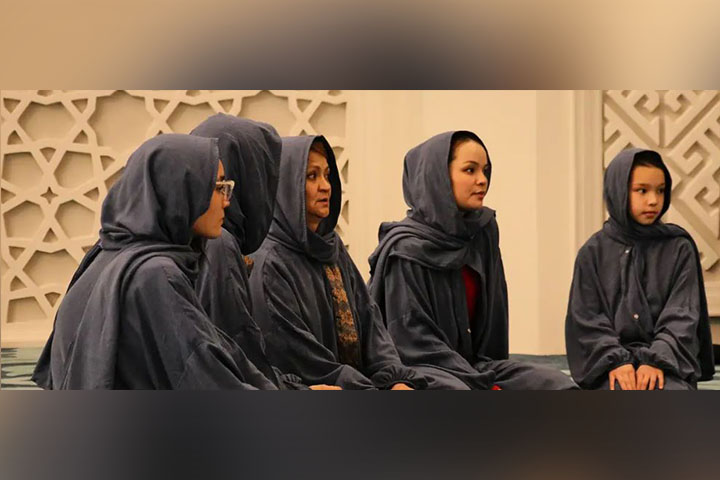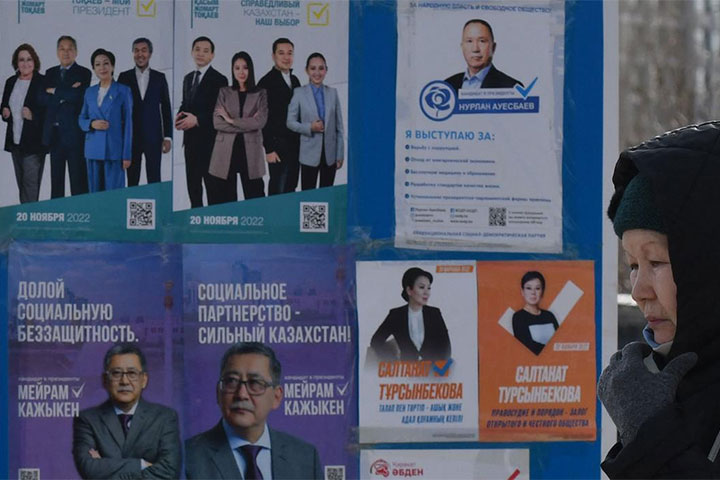Kazakhstan announces ban on hijabs in schools
The Kazakh government's recent announcement of a ban on wearing the hijab headscarf in educational institutions has sparked fierce debate in the country.
"Requirements for the school uniform prohibit the wearing of the hijab, since any attribute, symbol, element in one way or another implies propaganda of the dogma to which they relate. Ensuring the equality of all religions before the law, the principles of secularism do not allow the advantage of any religion,” reads the statement on the "For citizens” section of the Kazakh government's website, dated October 16.
The statement also bans the hijab for school teachers. However, it emphasizes that the ban does not apply outside of schools.
A secular state
According to official figures, almost 70% of Kazakhstan's population practices Islam. But both supporters and opponents of the ban quickly came forward. Proponents stressed that Kazakhstan was a secular country and should therefore avoid privileging any particular religion. Opponents however believe that such restrictions violate the principles of freedom of conscience, and some have taken extreme measures to protest the ban.
Kazakh Education Minister Gani Beisembayev confirmed that in the Atyrau region alone, 150 girls have dropped out of school since the beginning of September because of the ban. And in the Turkestan region, two men reportedly beat a local school director because she refused to allow girls wearing hijabs to attend classes.
Kazakh President Kassym-Jomart Tokayev also commented on the matter at the national teachers' congress in the capital Astana, saying that a school is an educational institution where people come to acquire knowledge, while religious beliefs are a private matter. "Freedom of religion is guaranteed by law in our country. I think it is right for children to decide for themselves when they grow up and develop their own worldview," Tokayev said, adding that Kazakhstan was and would remain a secular state.
'A certain form of segregation'
Opponents remain unmoved. Flash mobs are being organized on social media, with schoolgirls burning their exercise books and demanding the right to wear Muslim clothing or asking their peers to try on the hijab directly on the street. They stress that they "would not trade their hijab for anything." Leading female public figures have also joined the protest, publishing photos of themselves wearing the hijab on social networks.
Among those who supported the protests is Togjan Qojaly, a member of the Almaty social council who told DW that she believes the ban is illegal.
"First of all, you have to know that the hijab is actually a headscarf with which girls in Kazakhstan were covered from puberty, that is, from the age of 13.There is no religious connotation here. Second, the law enshrines the right to education, and the ban that has been enacted is an artificial barrier to exercising that right. Why do headscarves suddenly prevent Muslim girls from joining secular life? No one is banning the wearing of Christian crosses or tubeteika caps. In fact, we are talking about a certain form of segregation," Qojaly said.
If at all, only full-coverage Muslim women's clothing should be banned, she said, such as the niqab, veil and burqa, which prevent personal identification.
'A conscious decision'
Akbope Ychylasova, a nurse from Almaty who graduated from the Islamic school in her city's central mosque many years ago, says that according to her observations, women who wear a niqab and veil are very different in character from those who wear a hijab.
"Lately, many girls and women are wearing a niqab and veil. I see them more and more in buses and subways. They don't want to talk to us, they react rudely to our questions and scold us all the time. I doubt that they are real Muslim women. Our teachers at the mosque said that true Islam does not accept hostility, just as it does not accept fanaticism," Ychylasova said, adding that in the past, Kazakh women covered neither their faces nor their hands.
She also believes that the demand to urge girls to drop out of school because of the hijab ban is wrong. "Wearing a hijab is always a conscious decision. But in Muslim families, girls are still subject to the influence of their parents even at the age of 16. You can't take away their childhood. Let them learn first and then decide for themselves whether they want to pray five times a day or not," said Ychylasova, who has five daughters of her own.
Grand mufti suggests madrasas
The Spiritual Administration of Muslims of Kazakhstan has proposed a solution. According to the Supreme Mufti of Kazakhstan, Nauryzbay Kazhy Taganuly, girls who want to wear a hijab should be taught in a madrasa, or Muslim educational institution, from the 10th grade onward.
"Such a possibility exists. Religious and secular subjects are taught there in accordance with the Ministry of Education's standard for higher education," the Grand Mufti said. So far the authorities have not objected to this suggestion, though the ban on wearing the hijab applies to all educational institutions in Kazakhstan without exception.
22 Oct 2023,13:51



















 Live Tv
Live Tv


